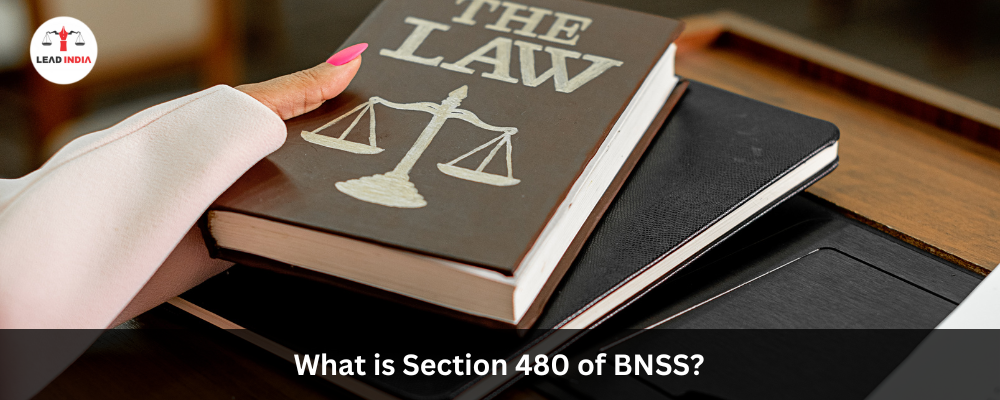Section 480 of BNSS
Section 480 of BNSS talks about when bail may be taken in case of a non-bailable offense. It provide us with condition when bail can be taken in non–bailable offense. The non–bailable offenses are the ones where bail cannot be grant without the order of the magistrate. The bail-in of such offenses is not grant as the right of the accuse. Section 2(1)(c) of BNSS states that any offense other than a bailable offense is call a non–bailable offense.
Section 480(1) states that when the person is arrest on the suspicion of any non–bailable offense without any warrant and is brought before any court other than the High Court or Court of Session, then in such a case, he may be release on bail.
- Proviso 1 states that if there is reasonable ground to believe that the person has commit an offense punishable with death or life imprisonment. The person will also be release if he has commit any cognizable offense and he had been previously convict of an offense punishable with seven years or more, or he was previously convict on two or more occasions of a cognizable offense punishable with punishment not below 3 years. and not above 7 yrs.
- The proviso 2 is the exception to proviso 1. It states that proviso 1 will not apply to women or children or sick or infirm persons.
- The proviso 3 states that the person who falls under proviso 1 part 2 can be release on bail for some special reasons.
- Proviso 4 states that the person cannot be detain in custody on the ground that he will be require to be identify by the witnesses after his 15 days is over in police custody.
- Proviso 5 states that if the offense falls under the first part of Proviso 1 then the court should hear the Public Prosecutor before granting bail.
Need A Legal Advice
The internet is not a lawyer and neither are you. Talk to a real lawyer about your legal issue

Section 480(2) states that if the court thinks that there are no reasonable grounds to believe that the accuse has commit any non-bailable offense but there is sufficient ground for further inquiry, then the court should release the accuse on bail.
Section 480(3) states that the court should impose certain conditions on bail if the accused person has committed an offense punishable with imprisonment of 7 years or more or an offense under Chapter VI, Chapter VII, or Chapter XVII of the Bharatiya Nyaya Sanhita, 2023 or abetment, or conspiracy or attempt to commit, any such offense. The conditions can be:
- That the accused person shall attend the court;
- He will not commit a similar offense;
- He will not induce or threaten any person who is acquaint with the facts of the case.
Section 480(4) states that the court should record his reasons for releasing a person on bail.
Section 480(5) states that the court can cancel the bail at any time and direct the arrest of the person.
Section 480(6) states that in the cases which are triable by the magistrate, the trial is not conclude within 60 days from the date fix for taking evidence, then in such a case if the accuse was in custody for the whole of such period then he shall be release on bail.
Section 480(7) states that after the conclusion of the trial and before the pronouncement of judgment if the court believes that the accused has not committed any non–bailable offense then the court should release the accused on bail.
The Important Factor To Grant Bail
In Sanghian Pandian Rajkumar vs. CBI & Anothers, (2014) 12 SCC 23, the Supreme Court held that the following factors are require to be consider by the court before granting bail.
- The nature of accusation and the severity of punishment in case of conviction and the nature of supporting evidence.
- Reasonable apprehension of tampering with the witness or apprehension of threat to the complainant.
- Prima facie satisfaction of the court in support of the charge.
Free legal advice, online information, and other various legal assistance are provided by Lead India. We provide you with a platform where you can talk to a lawyer and even ask a legal question. Our lawyers are always here to help you with any legal issues. We not only provide online legal support but we also provide the facility of asking a free legal question.





 Talk to a Lawyer
Talk to a Lawyer